"You WILL get through this!" Interview with Fashion Blogger and OCD Advocate Jemma MrDak
 Hello there CBT School Community!
Hello there CBT School Community!
Welcome back to another episode of Your Anxiety Toolkit Podcast. Today, we are so excited to share with you Jemma Mrdak. Jemma is a well-known Australian Fashion and Lifestyle Blogger and an avid Mental Health advocate. I first heard about Jemma on social media after she bravely came out and talked about her experience with Obsessive Compulsive Disorder (OCD) on the Today show. As soon as I saw her interview, I knew she would be such an inspiration to you all.
In this episode, Jemma talks about her struggles with Obsessive Compulsive Disorder (OCD), specifically checking and tapping compulsions. Jemma talks about being so overwhelmed with anxiety that she was unable to get to school on time and fell behind in her studies. Jemma also talks about her success with seeking treatment from a Cognitive Behavioral Therapist (CBT) and how she used her tools to help her get her life back from OCD. Jemma also shared her love for nature and exercise and how that helped her get in touch with the practice of Mindfulness. If you are feeling hopeless about your future and questioning if you are able to get better at managing your anxiety and OCD, this episode is for you. Jemma is so great at sharing what was easy, what was really hard and what roadblocks she came across in her treatment journey. She is truly an inspiration and will give you some amazing words of wisdom to help with on your journey to mental wellness.
For more info on Jemma, visit the below:
Website: astylishmoment.com
IG: @astylishmoment
Before we go, GET EXCITED! ERP School is almost here again. ERP School will be re-released in late January. Click HERE to be the first one alerted by signing up to be on the waitlist.
How Practicing Self-Respect Can Lead to Self-Compassion
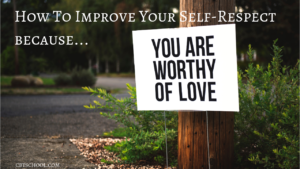 Hello there CBT School Family! I am so thrilled to share another episode of Your Anxiety Toolkit Podcast with you.
Hello there CBT School Family! I am so thrilled to share another episode of Your Anxiety Toolkit Podcast with you.
You guys know me well enough to know that I am a huge fan and advocate for the practice of self-compassion. I love sharing the benefits of self-compassion and helpful ways to put it into practice.
However, over the past few months, I have heard the hopelessness in some of your voices when you share with me that self-compassion just feels too hard and too triggering. Maybe you feel like you don’t deserve to be kind to yourself, which is common in Anxiety, Depression and Obsessive Compulsive Disorder (OCD), or you are afraid that practicing self-compassion will mean you lose control and become a lazy, useless bum (none of this is true, BTW).
For those of you who are struggles with self-compassion, this podcast is for you. Today we are talking all about how practicing self-respect can lead to self-compassion. Self-respect is all about honoring your right to be treated fairly and kindly. It is all about not treating yourself in a way that is disrespectful and hurtful. We all deserve to be treated equally and fairly, and this is a practice that is crucial if you ever want to master the practice of self-compassion. In this episode of Your Anxiety Toolkit Podcast, we will discuss effective ways to practice self-respect and learn how self-respect leads us towards the beneficial practice of self-compassion.
During the podcast episode, we take a look at how you can improve self-respect by addressing these important questions.
1) Do my behaviors represent and reflect self-respect?
2) Do my behaviors respect my values?
3) Do my behaviors respect my beliefs?
4) Do my behaviors allow me to achieve my goals and values?
5) What are some times I have felt a true sense of self-respect?
6) Does my behavior lead me towards a sense of mastery (of a skill or a situation)?
7) What behaviors am I doing that damage my sense of self-respect?
I hope this podcast episode brings you closer to the practice of self-respect and self-compassion. These are two concepts I am very invested in and I hope you find them helpful.
How to Thrive and Survive The Holidays
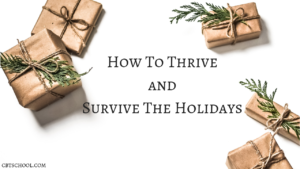 Happy Holidays Everyone!
Happy Holidays Everyone!
Well, the holiday season is here and if you’re anything like me, you’re feeling slightly overwhelmed and stressed because of all you have to do, and all of the emotions that go along with the holidays. This is a common time of the year where we can experience very high emotions such as joy, happiness and excitement, but we also experience a lot of difficult emotions such as fear, panic, depression, hopelessness, grief and loneliness.
Given that this is such a universal experience during the holiday period, we thought it was a great opportunity to bring on Alison Seponara who is a Licensed Professional Counselor in the state of Pennsylvania to talk about How to Thrive and Survive the Holidays. This episode is particularly important if you are also managing a mental illness or other psychological stressors. It is not uncommon for anxiety and depression to worsen during the holiday period, so we wanted to be sure to bring you multiple tools to help you Thrive and Survive the Holidays.
In this interview Alison and I talk about important topics that can really impact our mental wellness during the Holiday season. In this podcast, we address the following:
- Grief and how the holidays can bring up grief you were not expecting
- Anxiety and how it is often increased due to the stress of the holiday period and the presence of triggering family members
- Social anxiety and how it can cause us to dread the holiday period
- The fear of saying no to family members and events that you don’t think are healthy for you to attend
- The financial struggles that go along with the holidays
- The overwhelming expectation to feel nothing but joy and celebration
The most important point Alison and I made during this episode of Your Anxiety Toolkit is that YOU DO NOT HAVE TO FEEL BAD IF YOU ARE NOT ENJOYING THE HOLIDAYS. Alison made some great points in reassuring you that it is ok and totally normal to struggle instead of feeling festive. I hope you find this podcast helpful and you now feel ready to thrive and survive the holidays.
Tips To Help You Share Your Mental Illness With Others
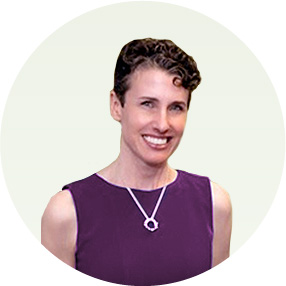 Welcome back to Your Anxiety Toolkit podcast!
Welcome back to Your Anxiety Toolkit podcast!
Recently on the podcast, I shared my own personal journey of struggling (and now managing) significant anxiety, disordered eating and life stressors. It was a scary, yet brave thing for me to do and I am so glad I did. Because I am constantly telling others that “It is a beautiful day to do hard things,” I figured I have to walk the walk, not just talk the talk. It was such an amazing experience to hear many of your reflections and own personal stories on these difficult issues.
What surprised me was that one of the most common questions I heard from you guys (my lovely CBT School community and YAY Podcast listeners) was, “HOW do I share my story?” So many people reached out and shared that they wish they had the courage and “know-how” to start telling others about their journey with mental illness. Maybe you want to empower others? Maybe you want to get it off your chest? Maybe you want to reduce the stigma around your own disorder and mental health struggles?
So, you know what I did? I called the person I most respect when it comes to sharing her story, Shala Nicely. Together we recorded a podcast episode and talked about what you might want to consider when making the decision to share your story. Shala shared many beautiful personal examples of her own process of writing a memoir about her journey with Obsessive Compulsive Disorder (OCD) and how she handled the ups and downs of this process.
Shala and I also talked about HOW to share what you are struggling with a friend or loved one. Shala gives some wonderful tips to decide who to share with and why it might not be who you would have first considered.
What no one can prepare you for is your own mental roller coaster that occurs when you share information about yourself. We also address self-criticism and dealing with what I call “sharing remorse” or what Brene Brown calls a “vulnerability hangover” after telling someone your deep dark secrets. One of the things I love the most about Shala is that she is honest and open about the ups AND the downs of sharing. She shares what it is like for her to handle negative feedback and how she manages that through Exposure and Response Prevention (ERP). I hope this helps you come to a decision for yourself.
Managing Perfectionism and Learning To Be Good Enough (with Kim Foster Carlson)
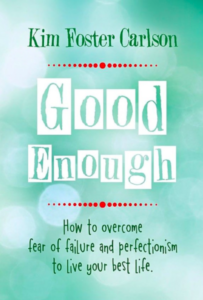 Welcome to another episode of Your Anxiety Toolkit Podcast! This week, we talk about all things anxiety and mental health.
Welcome to another episode of Your Anxiety Toolkit Podcast! This week, we talk about all things anxiety and mental health.
Today, I am excited to share with you our guest, Kim Foster Carlson. Kim Foster Carlson is an award-winning broadcast journalist in San Francisco Bay and the author of the book Good Enough: How to Overcome Fear of Failure and Perfectionism To Live Your Best Life.
There is not a day in my office where I don’t see the debilitating anxiety that is caused by perfectionism. Perfectionism can prevent us from trying new things, paralyze us when we have to perform, and can cause us to be very hard on ourselves. In today’s podcast, Kim addressed many of the factors that might cause perfectionism, as well as some super helpful tools to manage it. The difficult part is that we are constantly being bombarded by unrealistic expectations from our family, our social media accounts, from magazines and from our society’s expectations.
In this interview, Kim and I talk about perfectionism, fear of failure, anxiety and procrastination.
Kim shares her history of being an athlete and how perfectionism and the fear of failure caused her to be very hard on herself.
Kim also shares her story of going to therapy and realizing that perfectionism was the cause of her anger, anxiety and poor coping strategies. She shared how this was triggered by stressors related to parenting and she was so open about how she got through some very difficult times. Kim details many mindfulness skills that helped her along the road to becoming a “recovered perfectionist.”
One tip that I loved from today’s episode of Your Anxiety Toolkit was Kim’s example of Steph Curry, a professional basketball player. Kim emphasized the importance of “finding the joy” (Steph Curry’s phrase) in everything we do by practicing gratitude and by verbally thanking someone every day. I just loved this idea and this is a tool I am going to adopt myself.
I hope you enjoy this week’s episode.
This is me...doing a hard thing
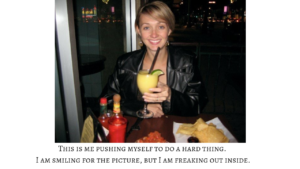
Hello there lovely CBT School Community,
You all know how much I adore coming on here every week and sharing cool Cognitive Behavioral Therapy (CBT) tips or fun Mindfulness tools with you all!? As I often say, “these are skills for life” and sometimes we have to stare the dark place of mental illness in the face before we get introduced (and practice) these wonderful tools. Sometimes, we have to hit rock bottom before we ask for help. We have to be struggling so much that we have no choice but to double down and learn the tools we need to live a more mindful and healthy life.
This was definitely the case for me. In today’s episode of Your Anxiety Toolkit podcast, I share with you my story with Mental Illness.
I am not going to lie. I have felt many emotions about sharing my own story. This week’s episode is one that has challenged me to be as brave as I can be.
I have been thinking about telling my own story of mental illness/health for some time and it has taken me many conversations with trusted colleagues and family members to come to a place where I felt ready. So, today, I bravely share with you my story. This is me….doing a hard thing.
In the episode, I talk about how I moved away from my small hometown to go to university. Immediately, I was riddled with anxiety and panic. I felt so painfully alone and I was plagued with the repetitive thought that “something bad will happen.” I felt out of control and I had no tools to manage these terrifying feelings. In this episode, I share how I responded to these thoughts in the only way I knew how. I used what some would consider very positive behaviors and use them in a way that became very problematic. Before too long, I was restricting my food, compulsively exercising and binge-eating to manage my emotions. I spent hours planning and calculating my calorie intake and I kept it all a secret, in fear that someone would find out how much I was struggling. I was so afraid of being seen as weak or over-dramatic. These behaviors stripped me of my joy, comfort and my life.
My hope with sharing my own personal story is to remind you that you can get better. I also hope that it helps us all feel more connected and a part of the same community. We all have our own story and struggles, and I wanted to share mine with you so you felt I understood what you might be going through. While I might not have exactly the same story (or circumstances), we all get to the place where we have to ask for help. We all get to the place where were feel so out of control that we have to make a change. That was me. And this is me….doing a hard thing.
I hope you find it helpful, or comforting. Please know that you can get better and you can get your life back.
Dr. David Burns Helps Us Learn the Art of Feeling Good
Hello! My name is Kimberley Quinlan and welcome back to Your Anxiety Toolkit Podcast.
 For those of you who are new, welcome! Your Anxiety Toolkit is brought to you by CBTschool.com. CBTschool.com is an online resource that provides evidence-based tools and resources for those who are experiencing anxiety, depression, or other mental health struggles. CBT is an acronym for Cognitive Behavioral Therapy. CBT is made up of Cognitive Therapy and Behavioral Therapy.
For those of you who are new, welcome! Your Anxiety Toolkit is brought to you by CBTschool.com. CBTschool.com is an online resource that provides evidence-based tools and resources for those who are experiencing anxiety, depression, or other mental health struggles. CBT is an acronym for Cognitive Behavioral Therapy. CBT is made up of Cognitive Therapy and Behavioral Therapy.
Today, I am so excited to share with you one of the masters in our field of Cognitive Behavioral Therapy, Dr. David Burns. Dr. Burns has been a legend in my mind for many years. He wrote the book Feeling Good, which I consider one of the most valuable books for the management of faulty and unhelpful thoughts.
Dr. David Burns is an adjunct professor in the Department of Psychiatry and Behavioral Sciences at the Stanford University School of Medicine. David Burns is also the author of the best-selling books Feeling Good: The New Mood Therapy, The Feeling Good Handbook, When Panic Attacks, and has a new book being written called Feeling Great (I cannot wait to read this one!). Dr. David Burns brings Cognitive Therapy, Buddhist foundations and principals, and Behavioral Concepts into this amazing work.
Dr. Burns also created and copyrighted The Burns Depression Checklist, which is a rating scale for depression that I use very often in my office.
In our interview today, David Burns helps us by teaching how to better approach our faulty cognitions that cause depression. Burns states that 50% of anxious people will be depressed and 100% of depressed people will be anxious. He strongly believes that much of our depression is directly related to our faulty thoughts, which I am sure you will all find very interesting and inspiring. What David Burns teaches us is how to correct our depressive thoughts and come up with strong, powerful statements to counter their incorrect content. We talk about themes such as hopelessness, helplessness and worthlessness.
Please note, there are points made by Mr. Burns regarding medication, but I really encourage you to speak with your doctor to make sure your medical and medication plans are best for you. Every person is different and needs specific care.
Dr. David Burns also addresses these topics during the interview:
- Thoughts are the cause for depression.
- If you can change the way you think, you will change the way you feel.
- Recent studies researched Feeling Good, to test if it clinically helps those who are experiencing depression, and results showed it is highly effective for those who suffer from depression.
- How he conceptualizes recovery as either 100% recovery (where all symptoms are gone) and 200% recovery (a stage and experience of enlightenment).
ONE Day Non-Judgment Challenge
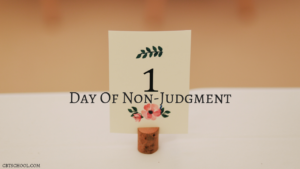 Hello and welcome back to Your Anxiety Toolkit Podcast. Today we are talking about an interesting challenge.
Hello and welcome back to Your Anxiety Toolkit Podcast. Today we are talking about an interesting challenge.
You see, recently I was dared to take an entire day to just listen to my body and feel my feelings and sit in peace. I thought this was a fabulous idea so I shipped my kids and husband away for one day (I never do this BTW)
What quickly arose was one thing that was taking the joy out of what could have been a lovely day. That thing was Self-judgment. Self-judgment is the thing that kept bringing me out of simply spending the day with myself.
“I should be doing this instead”
“You are being lazy”
“Why did you choose that activity?”
“You have to do it this way because that way is a waste of money”
“You shouldn’t be feeling this way”
“You don’t deserve this”
“Why did you do it that way?”
“Why are you the way you are?
Here are just a few of the self-judgment statements we say to ourselves during the day. When you see it on paper, it sounds so awful. Yet, these are things we say to ourselves without hesitation or even awareness sometimes.
So, I decided to change the focus of the day away from it being a day of freedom and pleasure and towards a day where I practiced non-judgment. I called it the NON-JUDGMENT CHALLENGE DATE DAY (or #nonjudgmentdateday on social media).
So, here is the challenge. Non-Judgment Challenge Day is a day where you go out on your own for a whole day (or an hour or two) and you practice doing things you enjoy doing. Do something pleasurable or exciting or new. As you do this, be very aware of the thoughts in your mind. During this date with yourself, observe your thoughts, both positive and negative, about yourself and the activity you are engaging in.
Non-Judgment Challenge Day was a complete eye opener for me and I strongly encourage you to try it. Listen in to this episode of Your Anxiety Toolkit Podcast to hear about my reflections and struggles with my very own Non-Judgment Challenge Day.
Also, I just wanted to let you know about “What if?”, a collaborative film project by Robin Roblee-Strauss for his senior thesis project at Hampshire College. “What if?” Is a movie that documents the experiences of living with OCD. The film focuses on the voices of those struggling with OCD as the experts on their own internal experiences and recovery processes. And guess what....you can be involved in its creation! Go to www.whatifocdmovie.com to learn how you can be a part of the project by sharing your story, contributing cinematic or artistic expertise, or donating. By creating a movie with the help of individuals with OCD, Robin hopes to empower sufferers to speak out and show the world a brave and honest look into the struggle with uncertainty and anxiety.
Tips To Manage Anxiety At Work
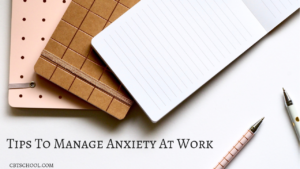 Welcome back to another episode of Your Anxiety Toolkit. Today’s topic was a suggested topic be one of the members of our online FB group, CBT School Campus. One of the members asked for tips to manage anxiety at work. This is a very important topic, as it is common for some to appear to be highly functioning, but underneath, they are riddled with anxiety and feel like they have no tools to manage their anxiety. The hard part about managing anxiety at work is that it is a practice of multi-tasking. Not only are you fulfilling requirements of your job description, but you are also trying to manage intrusive thoughts, uncomfortable feelings and (sometimes) terrifying urges. These are common symptoms of Generalized Anxiety Disorder (GAD), Obsessive Compulsive Disorder (OCD), Social Anxiety, Health Anxiety (hypochondria) and Panic Disorder. So, this week we are addressing 10 tips to manage anxiety at work, school, volunteering or other activities that you might do. Don’t get me wrong. There are many other tools that could be used, but these are some of the ones I thought might be the most helpful. Here is a quick overview of the 10 tips to manage anxiety at work:
Welcome back to another episode of Your Anxiety Toolkit. Today’s topic was a suggested topic be one of the members of our online FB group, CBT School Campus. One of the members asked for tips to manage anxiety at work. This is a very important topic, as it is common for some to appear to be highly functioning, but underneath, they are riddled with anxiety and feel like they have no tools to manage their anxiety. The hard part about managing anxiety at work is that it is a practice of multi-tasking. Not only are you fulfilling requirements of your job description, but you are also trying to manage intrusive thoughts, uncomfortable feelings and (sometimes) terrifying urges. These are common symptoms of Generalized Anxiety Disorder (GAD), Obsessive Compulsive Disorder (OCD), Social Anxiety, Health Anxiety (hypochondria) and Panic Disorder. So, this week we are addressing 10 tips to manage anxiety at work, school, volunteering or other activities that you might do. Don’t get me wrong. There are many other tools that could be used, but these are some of the ones I thought might be the most helpful. Here is a quick overview of the 10 tips to manage anxiety at work: - Don’t aim for no anxiety.
- Accept that it will be there
- Don’t judge yourself for having anxiety
- There is nothing “wrong” with you for having anxiety.
- You are not “bad” for having anxiety
- Your worth doesn’t change because of anxiety’s presence
- Do a Door check (listen to the episode for more information on this)
- Pull your shoulders back
- Create a strength-based statement to get you through the hard times
- “We can do hard things”
- “This too will pass”
- “I am stronger than I think I am”
- “I have done hard things before and I survived”
- Set small, realistic goals
- Focus on only one client at a time
- Do one job or one assignment at a time
- Have rewards for work well done
- Implement a consistent and strong self-care plan: Getting exercise and sleep, as well as reducing caffeine and alcohol, is a good start.
- Begin a Self-Compassion practice
- You have to name emotions to tame emotions.
- Bring on that Anxiety, baby! Try to stare your fear in the face as much as you can.
The Best FREE Mindful Tool Is...
 Clients and the CBT School community are often asking me for tools and tricks to manage anxiety. Thankfully, we are so blessed there are so many scientifically proven tools and treatment modalities to help those with anxiety, depression, and other struggles. However, I feel the need to bring us back to a mindful tool that we can use any time we want. The great thing about this tool is that it is THE BEST FREE MINDFUL TOOL! That's right! It is the best, and it is free. Before we do that, I want to look at things abstractly for a second. I promise it will make sense once I tell it so hear me out. Let’s say I want to be a great mom. I want my daughter to think I am the freaking best mom ever. Here is the thing! Just because I am her mother, that doesn’t automatically mean she and I will be good friends and have a great relationship. Or, that she will even like me. To be a freaking rockstar mom, and to make a lasting impact on her heart and well-being, I am going to have to nurture her and our relationship. I am going to have to hear her pains. I will need to sit with her when things are hard. She will need me to hold her hand and be compassionate when she makes mistakes. And wipe her tears when she cries. And most of all, she will need me to not deny her of her anger and sadness and brattiness. I am going to need to really be with her. To have a nurturing and healing relationship, I can't cheat and do it the fastest way. She is not going to think I am an amazing mom just because I buy her the newest iPad and get her the best clothes and hire the best nanny to take care of her all the time. Those things are great and will make her happy for the short term, but they won’t result in a good relationship with my daughter in the long term. She won’t feel deeply loved by me and she won’t feel deeply seen. If I want to have a lasting and healthy relationship, I have to actually sit with her. Be with her. Not disown her because she is angry or being naughty. I can’t just leave it to the nanny to fix her when she is sad or angry or not cleaning her room. I can't buy her a trip to Disneyland and send her off with the nanny and expect that she will feel loved by me just because I arranged it and paid for it. If I do that, she will understand that I will only be there when she is good, or when it is easy, and she will not feel worthy when she is having tough emotions. Here is where the healing and growth occurs. So, here is this week’s lesson. When it comes to your mindfulness practice, you can't cheat. You too have to do the actual “being with.” Our relationship with ourselves is no different. We all want to be deeply understood. We all want to feel worthy of being sat with. We all know that feeling deeply seen is one of the most healing experiences we can be given. Here’s the big question for this podcast episode. Do you try to cheat when it comes to actually spending time with yourself and deeply sitting with your experience? My guess is you are saying Yes. We cheat ourselves on self-care and just “being” all the time. So, let's talk about how we befriend ourselves. This is the best FREE mindful Tool I am talking about. The best free Mindful tool is your breath. We disregard breath as one of the best mindful tools and we push forward wanting more supercharged, easier tools. During this podcast, we do a short breathing meditation, in hope to simply honor our “being” and “spend time with” ourselves. Returning to our breath really is the best free mindful tool. Before we go, here is a reminder to check out our swag! WE ARE SO THRILLED TO FINALLY BE OFFERING IT! We have an array of t-shirts and tanks for men, women, and children. Each product has our very own CBT SCHOOL motto, “It is a beautiful day to do hard things.” Check it out at the following link! https://www.etsy.com/shop/CBTschool
Clients and the CBT School community are often asking me for tools and tricks to manage anxiety. Thankfully, we are so blessed there are so many scientifically proven tools and treatment modalities to help those with anxiety, depression, and other struggles. However, I feel the need to bring us back to a mindful tool that we can use any time we want. The great thing about this tool is that it is THE BEST FREE MINDFUL TOOL! That's right! It is the best, and it is free. Before we do that, I want to look at things abstractly for a second. I promise it will make sense once I tell it so hear me out. Let’s say I want to be a great mom. I want my daughter to think I am the freaking best mom ever. Here is the thing! Just because I am her mother, that doesn’t automatically mean she and I will be good friends and have a great relationship. Or, that she will even like me. To be a freaking rockstar mom, and to make a lasting impact on her heart and well-being, I am going to have to nurture her and our relationship. I am going to have to hear her pains. I will need to sit with her when things are hard. She will need me to hold her hand and be compassionate when she makes mistakes. And wipe her tears when she cries. And most of all, she will need me to not deny her of her anger and sadness and brattiness. I am going to need to really be with her. To have a nurturing and healing relationship, I can't cheat and do it the fastest way. She is not going to think I am an amazing mom just because I buy her the newest iPad and get her the best clothes and hire the best nanny to take care of her all the time. Those things are great and will make her happy for the short term, but they won’t result in a good relationship with my daughter in the long term. She won’t feel deeply loved by me and she won’t feel deeply seen. If I want to have a lasting and healthy relationship, I have to actually sit with her. Be with her. Not disown her because she is angry or being naughty. I can’t just leave it to the nanny to fix her when she is sad or angry or not cleaning her room. I can't buy her a trip to Disneyland and send her off with the nanny and expect that she will feel loved by me just because I arranged it and paid for it. If I do that, she will understand that I will only be there when she is good, or when it is easy, and she will not feel worthy when she is having tough emotions. Here is where the healing and growth occurs. So, here is this week’s lesson. When it comes to your mindfulness practice, you can't cheat. You too have to do the actual “being with.” Our relationship with ourselves is no different. We all want to be deeply understood. We all want to feel worthy of being sat with. We all know that feeling deeply seen is one of the most healing experiences we can be given. Here’s the big question for this podcast episode. Do you try to cheat when it comes to actually spending time with yourself and deeply sitting with your experience? My guess is you are saying Yes. We cheat ourselves on self-care and just “being” all the time. So, let's talk about how we befriend ourselves. This is the best FREE mindful Tool I am talking about. The best free Mindful tool is your breath. We disregard breath as one of the best mindful tools and we push forward wanting more supercharged, easier tools. During this podcast, we do a short breathing meditation, in hope to simply honor our “being” and “spend time with” ourselves. Returning to our breath really is the best free mindful tool. Before we go, here is a reminder to check out our swag! WE ARE SO THRILLED TO FINALLY BE OFFERING IT! We have an array of t-shirts and tanks for men, women, and children. Each product has our very own CBT SCHOOL motto, “It is a beautiful day to do hard things.” Check it out at the following link! https://www.etsy.com/shop/CBTschool
How To Talk To Others About Mental Illness (with Representative Michael Schlossberg)
 Hello there and welcome back to another episode of Your Anxiety Toolkit podcast. Today we have the final episode of the “We can do hard things” series; a series of episodes where we have inspirational and courageous guests who talk about hard and life-changing things. I have enjoyed this series so much and hope to start it back up again early next year. I just loved having all of the wonderful guests, who inspired me to be better and brave and more courageous.
Hello there and welcome back to another episode of Your Anxiety Toolkit podcast. Today we have the final episode of the “We can do hard things” series; a series of episodes where we have inspirational and courageous guests who talk about hard and life-changing things. I have enjoyed this series so much and hope to start it back up again early next year. I just loved having all of the wonderful guests, who inspired me to be better and brave and more courageous.
Today we are discussing how to talk to others about mental illness. I often get asked questions about how to share your story of having Obsessive Compulsive Disorder or Eating Disorder or Panic Disorder or depression with loved ones. If you are wondering how to talk to others about mental illness, this is the episode for you.
In this week’s episode, we have State Representative of Pennsylvania, Michael Schlossberg. Michael Schlossberg is not only a State Representative. He is a mental health advocate and the author of the fiction book Redemption. Redemption is a science fiction book about a character who defeats depression and anxiety. If you are interested in reading this book (the first of a three-part series), click HERE.
During this episode of Your Anxiety Toolkit podcast, Schlossberg talks about his response to Robin Williams’ death by suicide and how that propelled him to be more open about his own depression and anxiety. We talk about the experience of depression and how it can keep you feeling alone and isolated. Schlossberg has many pieces of helpful information on how to talk to others about mental illness. He talked about how talking to others about his mental illness made him feel closer to others and how it helped him to be more accepting and kind to himself.
The best advice I took from this episode was “There are more people in their rooms crying than you would ever notice. 1/5 Americans have depression. You are not alone.”
Click HERE to learn more about Michael's story and his focus on mental health in his governmental work. Find him on Facebook HERE and Twitter HERE.
How To Let Go of the Past
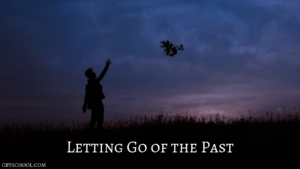 This week’s episode of Your Anxiety Toolkit Podcast is my response to a question that came directly from the online Facebook group CBT School Campus. It is based upon the following: how to let go of the past.
This week’s episode of Your Anxiety Toolkit Podcast is my response to a question that came directly from the online Facebook group CBT School Campus. It is based upon the following: how to let go of the past.
This question was one that the online group agreed was incredibly painful and one that was very difficult to approach. If you aren’t familiar with CBT School Campus, go check it out. CBT School Campus is an online group of wonderful people who support each other as they do hard things! The group includes people who are struggling with anxiety, depression and other mental health issues. Each member is kind, supportive and helpful.
Here is the question:
“One of my obsessive regulars is about things from the past that my mind twisted and has blown way out of proportion (at least that’s what my non-OCD support people tell me. Ha!), but the memories cause me immense guilt/shame because I question my motives and wish I hadn’t done it. I do my exposures to try and accept that I may have had the wrong motive, it may have been inappropriate, I may be bothered by it forever, etc.
My struggle lies in the yucky, depressed, guilty feeling it gives me as it looms and sucks the joy. That often leads to the worry of suicide if I can never get over it. I try to welcome the yuck, keep moving, etc. Anything specific that has helped you?”
What a great question! During this podcast, I talk about how we misinterpret events from the past and use past events to calculate or define ourselves, our worth and our value. This miscalculation (or rating game) can become a compulsion and as you might already know, the more you review yourself, the more you find to be upset about and the worse you feel.
DON’T FORGET, THIS WEEK IS OCD AWARENESS WEEK! CLICK HERE FOR INFORMATION.
WE ARE SO THRILLED TO FINALLY BE OFFERING SWAG! We have an array of t-shirts and tanks for men, women, and children. Each product has our very own CBT SCHOOL motto, “It is a beautiful day to do hard things.” Check it out at the following link! https://www.etsy.com/shop/CBTschool
Everything You Need To Know About Self-Compassion (Interview with Paul Gilbert)
 This week’s episode of Your Anxiety Toolkit is going to blow your mind! Yes! You better believe it! If you have been thinking you should start a self-compassion practice for yourself, THIS is the episode for you. Today we are going to discuss everything you need to know about self-compassion. This week I am so honored to talk with Paul Gilbert, Professor of Clinical Psychology at the University of Derby and Consultant Clinical Psychologist at the Derbyshire Health Care Foundation Trust. Paul Gilbert is what I consider a Self-Compassion and Shame “Guru.” We all know shame and we all know how difficult shame can be when it comes to Anxiety Disorders, such as Obsessive Compulsive Disorder (OCD), Social Anxiety, Specific Phobias, Panic Disorder, Generalized Anxiety Disorder (GAD), and Body Focused Repetitive Behaviors (BFRB’s), such as Trichotillomania (hair pulling) and Dermatillomania (compulsive skin picking). Paul shares with us his beautiful insight and understanding of the human brain and how to apply self-compassion in our daily living. So much of what Paul has to say compliments the discussions we have had on the podcast already. Professor Gilbert performed psychopathology research for over 35 years with a special focus on shame and the treatment of shame-based difficulties. Paul Gilbert was the founder of Compassion-Focused Therapy (CFT) and I am certain you are going to LOVE what he has to say. Paul Gilbert has written and edited 20 books and established the Compassionate Mind Foundation in 2006. He was awarded an OBE in March 2011. During this interview, Paul shares everything you need to know about self-compassion. Paul explains his work and research on self-compassion and how he came to practice and develop Compassion-Focused Therapy. Paul addresses why he thinks we are so hostile or self-critical towards oneself and what he considers the most important tools for practicing self-compassion The most beautiful part of this podcast episode is that we ALL need to be better at practicing self-compassion. As a reminder, it's BFRB Awareness Week (October 1-7)! Click here for more information on BFRB School, which is a complete online course for Body-Focused Repetitive Behaviors (BFRB's). Lastly, OCD Awareness Week is coming up from October 7-13! OCD SoCal will celebration OCD Awareness Week on October 7 from 1:00 pm-5:00 pm in Los Angeles, Orange County, and San Diego. Go to IOCDF.org or search your local area for events.
This week’s episode of Your Anxiety Toolkit is going to blow your mind! Yes! You better believe it! If you have been thinking you should start a self-compassion practice for yourself, THIS is the episode for you. Today we are going to discuss everything you need to know about self-compassion. This week I am so honored to talk with Paul Gilbert, Professor of Clinical Psychology at the University of Derby and Consultant Clinical Psychologist at the Derbyshire Health Care Foundation Trust. Paul Gilbert is what I consider a Self-Compassion and Shame “Guru.” We all know shame and we all know how difficult shame can be when it comes to Anxiety Disorders, such as Obsessive Compulsive Disorder (OCD), Social Anxiety, Specific Phobias, Panic Disorder, Generalized Anxiety Disorder (GAD), and Body Focused Repetitive Behaviors (BFRB’s), such as Trichotillomania (hair pulling) and Dermatillomania (compulsive skin picking). Paul shares with us his beautiful insight and understanding of the human brain and how to apply self-compassion in our daily living. So much of what Paul has to say compliments the discussions we have had on the podcast already. Professor Gilbert performed psychopathology research for over 35 years with a special focus on shame and the treatment of shame-based difficulties. Paul Gilbert was the founder of Compassion-Focused Therapy (CFT) and I am certain you are going to LOVE what he has to say. Paul Gilbert has written and edited 20 books and established the Compassionate Mind Foundation in 2006. He was awarded an OBE in March 2011. During this interview, Paul shares everything you need to know about self-compassion. Paul explains his work and research on self-compassion and how he came to practice and develop Compassion-Focused Therapy. Paul addresses why he thinks we are so hostile or self-critical towards oneself and what he considers the most important tools for practicing self-compassion The most beautiful part of this podcast episode is that we ALL need to be better at practicing self-compassion. As a reminder, it's BFRB Awareness Week (October 1-7)! Click here for more information on BFRB School, which is a complete online course for Body-Focused Repetitive Behaviors (BFRB's). Lastly, OCD Awareness Week is coming up from October 7-13! OCD SoCal will celebration OCD Awareness Week on October 7 from 1:00 pm-5:00 pm in Los Angeles, Orange County, and San Diego. Go to IOCDF.org or search your local area for events.
How To Do HARD THINGS...It's A Beautiful Day For It!!
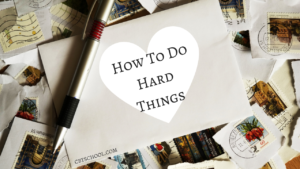 Welcome back to another Your Anxiety Toolkit Podcast episode! This week’s episode of Your Anxiety Toolkit is all about How to do Hard Things. I know I say “Its a beautiful day to do hard things” all the time, and sometimes people message me or email and ask me, “How do I do hard things?” Even friends and loved ones might call to ask, “Can you teach me how to do hard things?” These hard things might be doing Exposure & Response Prevention (doing something that scares you), taking a test, going to a doctor visit, traveling long distances, feeling intense feelings such as sadness or grief, delivering a speech, experiencing pain or any other event that scares the pants off you. :) A little note on this before we move on; Doing a Hard Thing is doing the thing that scares YOU, even if it doesn’t scare others. If it is hard for you, it is hard. Try not to judge yourself or compare yourself to what is hard for you vs. others. After talking with a dear, loved one this week about an upcoming “hard thing” they were preparing to do, I decided to write them a letter. My hope was they could read it as they prepared to stare their hard thing in the face (take that hard thing!). After sending it, I wondered if maybe you needed a similar letter. So, here we go. Here is the letter I sent my friend. I hope you find it helpful in understanding how to do hard things. "Hi my love, Here are the most important things to remember when dealing with fear, dread, and panic. Just because your brain is telling you there is "danger,” doesn't make it true or real or correct. Our brain misfires (and make mistakes) ALL the time and it is our job to help direct it back to more reasonable reactions. If we react with resistance, we keep training it to misfire. Our job is to just allow the anxiety, without reacting to it. We gently allow it to be present and allow it to rise and fall on its own. With this practice, we not only re-train our brain, but we learn that beyond this moment of discomfort is freedom. Just a few minutes beyond this discomfort is our opportunity to do whatever the fuck we want with our lives. Fear doesn't get to make our decisions. Our values and hopes and dreams do. You are strong, but you don't have to be stronger than fear. It's not a fight, so don't fight it. Slow everything down and gently say to it, "its ok, fear. I am just going to allow you to be here while I do the thing I love to do. You don't get to control me. Love, Kimberley" Also, CBT School is also excited to share that our lovely friend Stuart Ralph is offering The OCD Summit, an online summit specifically for OCD therapists. The OCD Summit will be a 6-week webinar series where Stuart Ralph, host of The OCD Stories podcast, will interview some incredible scientists and clinicians in the OCD field, with you the therapist as the audience. Kimberley is honored to be selected to be one of the panelists for this exciting event. Registration will include 6 topics curated for your continued development as an OCD therapist, where you can ask questions and network with other therapists in the private FB group community. Click here to join. Lastly, OCD Awareness Week is coming up: October 7-13! OCD SoCal will celebration OCD Awareness Week on October 7 from 1:00 pm-5:00 pm in Los Angeles, Orange County, and San Diego. Go to IOCDF.org or search your local area for events.
Welcome back to another Your Anxiety Toolkit Podcast episode! This week’s episode of Your Anxiety Toolkit is all about How to do Hard Things. I know I say “Its a beautiful day to do hard things” all the time, and sometimes people message me or email and ask me, “How do I do hard things?” Even friends and loved ones might call to ask, “Can you teach me how to do hard things?” These hard things might be doing Exposure & Response Prevention (doing something that scares you), taking a test, going to a doctor visit, traveling long distances, feeling intense feelings such as sadness or grief, delivering a speech, experiencing pain or any other event that scares the pants off you. :) A little note on this before we move on; Doing a Hard Thing is doing the thing that scares YOU, even if it doesn’t scare others. If it is hard for you, it is hard. Try not to judge yourself or compare yourself to what is hard for you vs. others. After talking with a dear, loved one this week about an upcoming “hard thing” they were preparing to do, I decided to write them a letter. My hope was they could read it as they prepared to stare their hard thing in the face (take that hard thing!). After sending it, I wondered if maybe you needed a similar letter. So, here we go. Here is the letter I sent my friend. I hope you find it helpful in understanding how to do hard things. "Hi my love, Here are the most important things to remember when dealing with fear, dread, and panic. Just because your brain is telling you there is "danger,” doesn't make it true or real or correct. Our brain misfires (and make mistakes) ALL the time and it is our job to help direct it back to more reasonable reactions. If we react with resistance, we keep training it to misfire. Our job is to just allow the anxiety, without reacting to it. We gently allow it to be present and allow it to rise and fall on its own. With this practice, we not only re-train our brain, but we learn that beyond this moment of discomfort is freedom. Just a few minutes beyond this discomfort is our opportunity to do whatever the fuck we want with our lives. Fear doesn't get to make our decisions. Our values and hopes and dreams do. You are strong, but you don't have to be stronger than fear. It's not a fight, so don't fight it. Slow everything down and gently say to it, "its ok, fear. I am just going to allow you to be here while I do the thing I love to do. You don't get to control me. Love, Kimberley" Also, CBT School is also excited to share that our lovely friend Stuart Ralph is offering The OCD Summit, an online summit specifically for OCD therapists. The OCD Summit will be a 6-week webinar series where Stuart Ralph, host of The OCD Stories podcast, will interview some incredible scientists and clinicians in the OCD field, with you the therapist as the audience. Kimberley is honored to be selected to be one of the panelists for this exciting event. Registration will include 6 topics curated for your continued development as an OCD therapist, where you can ask questions and network with other therapists in the private FB group community. Click here to join. Lastly, OCD Awareness Week is coming up: October 7-13! OCD SoCal will celebration OCD Awareness Week on October 7 from 1:00 pm-5:00 pm in Los Angeles, Orange County, and San Diego. Go to IOCDF.org or search your local area for events.
Grieving the Losses of Mental Illness
 Psst! This wasn't planned, but we decided to keep ERP SCHOOL open for ONE MORE DAY! If you are still interested in purchasing the online course for Exposure & Response Prevention (ERP) SCHOOL, it is available until midnight tonight (9/21/18). It didn’t feel right to release a podcast the day after the cart was closing and risk you missing out by only one day. So, this is the last day, I promise (for 2018). I am so grateful to everyone who supported me and sent me information about their successes since signing up and taking the course. This week’s episode of Your Anxiety Toolkit Podcast is possibly one of my most favorites. The reason for this is that this episode will give you so much validation for the pain you are going through. In this week’s episode, we have Chrissie Hodges, a Peer Support Counselor for mental health. In this episode, Chrissie talks with us about the importance of Peer Support and how she offered her own experience of recovery as a way to help guide and lead those who are also managing Obsessive Compulsive Disorder, Depression, Anxiety and many other mental illnesses or struggles. Chrissie also addresses a topic I have been wanting to talk about for the longest time, which is life AFTER treatment. It is such a common question I get asked. How do we survive when life looks so different? How to get past how difficult that experience was? What can I do to grieve the losses of mental illness? The truth is, grieving the losses of mental illness is brave and courageous work. It requires us to honor our experiences and allow ourselves to feel some pretty hard and uncomfortable feelings. Grieving the losses of mental illness allows us to forgive ourselves for the hard times and the time lost. This episode of Your Anxiety Toolkit was quite a powerful one for me. Chrissie got real about her own process of grieving the losses of mental illness (specifically Obsessive Compulsive Disorder, Anxiety, and Depression). Chrissie also shares her experience with suicidal ideation and a suicide attempt that has traumatized her since. She also shares how difficult it has been on her body and how it has caused her to disown parts of her body and soul. If you are someone who is also grieving or feeling hopeless about all that you have lost in managing your mental illness, then this is the podcast episode for you. Links: Coffee with Chrissie Podcast Chrissie Hodges Website Chrissie Hodges Youtube
Psst! This wasn't planned, but we decided to keep ERP SCHOOL open for ONE MORE DAY! If you are still interested in purchasing the online course for Exposure & Response Prevention (ERP) SCHOOL, it is available until midnight tonight (9/21/18). It didn’t feel right to release a podcast the day after the cart was closing and risk you missing out by only one day. So, this is the last day, I promise (for 2018). I am so grateful to everyone who supported me and sent me information about their successes since signing up and taking the course. This week’s episode of Your Anxiety Toolkit Podcast is possibly one of my most favorites. The reason for this is that this episode will give you so much validation for the pain you are going through. In this week’s episode, we have Chrissie Hodges, a Peer Support Counselor for mental health. In this episode, Chrissie talks with us about the importance of Peer Support and how she offered her own experience of recovery as a way to help guide and lead those who are also managing Obsessive Compulsive Disorder, Depression, Anxiety and many other mental illnesses or struggles. Chrissie also addresses a topic I have been wanting to talk about for the longest time, which is life AFTER treatment. It is such a common question I get asked. How do we survive when life looks so different? How to get past how difficult that experience was? What can I do to grieve the losses of mental illness? The truth is, grieving the losses of mental illness is brave and courageous work. It requires us to honor our experiences and allow ourselves to feel some pretty hard and uncomfortable feelings. Grieving the losses of mental illness allows us to forgive ourselves for the hard times and the time lost. This episode of Your Anxiety Toolkit was quite a powerful one for me. Chrissie got real about her own process of grieving the losses of mental illness (specifically Obsessive Compulsive Disorder, Anxiety, and Depression). Chrissie also shares her experience with suicidal ideation and a suicide attempt that has traumatized her since. She also shares how difficult it has been on her body and how it has caused her to disown parts of her body and soul. If you are someone who is also grieving or feeling hopeless about all that you have lost in managing your mental illness, then this is the podcast episode for you. Links: Coffee with Chrissie Podcast Chrissie Hodges Website Chrissie Hodges Youtube
Seasonal Affective Disorder (SAD) is REAL and TREATABLE!
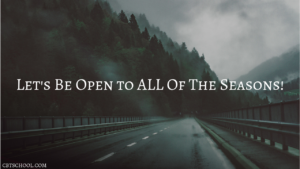 This podcast episode of Your Anxiety Toolkit is all about the Seasons. I have received a lot of requests to talk about changing seasons as we move from Summer to Autumn (here in the Northern Hemisphere). It isn’t just here. I am sure it is all around the world right now, as the seasons change from Winter to Spring for the Southern Hemisphere (Love you Australia!). There is no doubt that the seasons impact out mental health. In this week’s podcast, I look at a few important things to consider when managing anxiety, depression, OCD and other mental health issues. First let’s look at how the change in temperature impacts us on a Medical level. Seasonal Affective Disorder, also known as SAD, is understood to be a seasonal depression, affecting 5% of the population of US residents. Yes! It’s that high. If you are someone who is highly impacted by the temperature changes, you are definitely not alone. Seasonal Affective Disorder (SAD) can be treated with light therapy, outdoor activity and medication. Seasonal Affective Disorder isn’t just due to changes in seasons. It often occurs when daylight saving times changes and we “fall back," meaning we have less light during the day. When days get shorter, we have less time to get outdoors and move our bodies and soak up that glorious sunlight, which is linked to Seasonal Affective Disorder symptoms. We also know that colder weather can affect our circadian rhythms, causing us to have more depressive symptoms. When we are tired, we have less energy, causing us to feel down or sad or, in some cases, depressed. We also know that the season changes impact us on a Psychological level. We can also see changes in our thoughts. Negative thoughts can create depressive symptoms such as hopelessness, helplessness and worthlessness. Our job is to correct any negative or faulty thoughts so we are not so impacted by the weather or time changes. We can also be more mindful when these thoughts arise. In this episode, we also can look at the seasons from a metaphorical stand point. We need to be careful how we approach the seasons, similar to how we approach our emotions. We could consider some emotions as winter (like sadness and shame and guilt) and some emotions as summer (like happiness and joy and arousal). We could consider autumn being patience and letting go and shedding what doesn’t serve us. We could also consider spring a time where we feel free and hopeful and alive. Metaphorically, if we treat one season (environmentally or emotionally) like it is less than or worse than, we will in turn start to have aversion to it. In this episode, we talk about how to be open to all of the seasons, whether you enjoy them or not. Lastly, Exposure & Response Prevention (ERP) School for Obsessive Compulsive Disorder (OCD) is HERE! Exposure and Response Prevention School is an online, video-based course that teaches you the tools and skills I teach my clients in my office. The doors are only open to purchase ERP School from September 6th, 2018 until September 20th, 2018. Six more days!! We are so excited to share ERP with you and would love to have you join us and the CBT School community. Its a beautiful day to do hard things!
This podcast episode of Your Anxiety Toolkit is all about the Seasons. I have received a lot of requests to talk about changing seasons as we move from Summer to Autumn (here in the Northern Hemisphere). It isn’t just here. I am sure it is all around the world right now, as the seasons change from Winter to Spring for the Southern Hemisphere (Love you Australia!). There is no doubt that the seasons impact out mental health. In this week’s podcast, I look at a few important things to consider when managing anxiety, depression, OCD and other mental health issues. First let’s look at how the change in temperature impacts us on a Medical level. Seasonal Affective Disorder, also known as SAD, is understood to be a seasonal depression, affecting 5% of the population of US residents. Yes! It’s that high. If you are someone who is highly impacted by the temperature changes, you are definitely not alone. Seasonal Affective Disorder (SAD) can be treated with light therapy, outdoor activity and medication. Seasonal Affective Disorder isn’t just due to changes in seasons. It often occurs when daylight saving times changes and we “fall back," meaning we have less light during the day. When days get shorter, we have less time to get outdoors and move our bodies and soak up that glorious sunlight, which is linked to Seasonal Affective Disorder symptoms. We also know that colder weather can affect our circadian rhythms, causing us to have more depressive symptoms. When we are tired, we have less energy, causing us to feel down or sad or, in some cases, depressed. We also know that the season changes impact us on a Psychological level. We can also see changes in our thoughts. Negative thoughts can create depressive symptoms such as hopelessness, helplessness and worthlessness. Our job is to correct any negative or faulty thoughts so we are not so impacted by the weather or time changes. We can also be more mindful when these thoughts arise. In this episode, we also can look at the seasons from a metaphorical stand point. We need to be careful how we approach the seasons, similar to how we approach our emotions. We could consider some emotions as winter (like sadness and shame and guilt) and some emotions as summer (like happiness and joy and arousal). We could consider autumn being patience and letting go and shedding what doesn’t serve us. We could also consider spring a time where we feel free and hopeful and alive. Metaphorically, if we treat one season (environmentally or emotionally) like it is less than or worse than, we will in turn start to have aversion to it. In this episode, we talk about how to be open to all of the seasons, whether you enjoy them or not. Lastly, Exposure & Response Prevention (ERP) School for Obsessive Compulsive Disorder (OCD) is HERE! Exposure and Response Prevention School is an online, video-based course that teaches you the tools and skills I teach my clients in my office. The doors are only open to purchase ERP School from September 6th, 2018 until September 20th, 2018. Six more days!! We are so excited to share ERP with you and would love to have you join us and the CBT School community. Its a beautiful day to do hard things!
ERP Is the Coolest Thing!
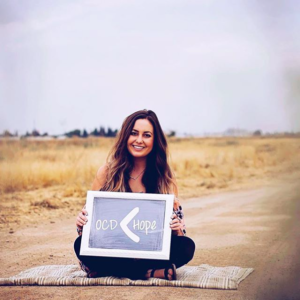 If you have Obsessive Compulsive Disorder or any other mental health struggle, you are going to LOVE this episode of Your Anxiety Toolkit. This week we have Nathalie Maragoni, an Associate Marriage and Family Therapist who not only treats Obsessive Compulsive Disorder (OCD) and other anxiety disorders, but also knows exactly what it is like the experience the terror of intrusive thoughts, panic attacks and brutal compulsions. She said it best herself: “ERP is the coolest thing!” In this episode of Your Anxiety Toolkit, Nathalie talks with us about how she struggles finding the correct therapy for her Obsessive Compulsive Disorder (OCD) and how she drove for over 1.5 hours to get a treatment specialist who used Exposure & Response Prevention (ERP). Nathalie also talks about her struggle with different types of obsessions and compulsions. She says, “Willingness is the key to managing OCD” and she could not be more correct about this. We just loved how she shared her love for Exposure & Response Prevention and how “ERP is the coolest thing!” Nathalie shares the importance of continuing ERP after treatment. She found that getting the proper treatment alone (ERP) was not enough to help her live a full and thriving life with OCD. She discusses the importance of applying Acceptance and Commitment Therapy (ACT) and how this helps her live a value-based life where she can just allow thoughts to be there, instead of fusing with them. For more information about Acceptance & Commitment Therapy, click HERE. Nathalie talks about how she is using the book The Happiness Trap to help her understand that “Every experience comes with a good feeling and a bad feeling.” In other news, Exposure & Response Prevention (ERP) school is HERE. Exposure and Response Prevention School is an online course that teaches you the tools and skills I teach my clients in my office. Just like Nathalie says, ERP is the coolest thing! Let me tell you a little bit about it. The course is a video-based course that includes modules on:
If you have Obsessive Compulsive Disorder or any other mental health struggle, you are going to LOVE this episode of Your Anxiety Toolkit. This week we have Nathalie Maragoni, an Associate Marriage and Family Therapist who not only treats Obsessive Compulsive Disorder (OCD) and other anxiety disorders, but also knows exactly what it is like the experience the terror of intrusive thoughts, panic attacks and brutal compulsions. She said it best herself: “ERP is the coolest thing!” In this episode of Your Anxiety Toolkit, Nathalie talks with us about how she struggles finding the correct therapy for her Obsessive Compulsive Disorder (OCD) and how she drove for over 1.5 hours to get a treatment specialist who used Exposure & Response Prevention (ERP). Nathalie also talks about her struggle with different types of obsessions and compulsions. She says, “Willingness is the key to managing OCD” and she could not be more correct about this. We just loved how she shared her love for Exposure & Response Prevention and how “ERP is the coolest thing!” Nathalie shares the importance of continuing ERP after treatment. She found that getting the proper treatment alone (ERP) was not enough to help her live a full and thriving life with OCD. She discusses the importance of applying Acceptance and Commitment Therapy (ACT) and how this helps her live a value-based life where she can just allow thoughts to be there, instead of fusing with them. For more information about Acceptance & Commitment Therapy, click HERE. Nathalie talks about how she is using the book The Happiness Trap to help her understand that “Every experience comes with a good feeling and a bad feeling.” In other news, Exposure & Response Prevention (ERP) school is HERE. Exposure and Response Prevention School is an online course that teaches you the tools and skills I teach my clients in my office. Just like Nathalie says, ERP is the coolest thing! Let me tell you a little bit about it. The course is a video-based course that includes modules on: - The science behind ERP
- Identifying YOUR obsessions and your compulsions
- The different approaches and types of ERP, including gradual exposure, writing scripts, interoceptive exposures and how to get creative with ERP
- Mindfulness tools to help you manage anxiety, panic and uncertainty
- Troubleshooting common questions and concerns
- BONUS videos explaining the most common subtypes of OCD and how to apply ERP to these obsessions and compulsions.
Don't Try Harder, Try Different with Patrick McGrath
Welcome back to YOUR ANXIETY TOOLKIT PODCAST!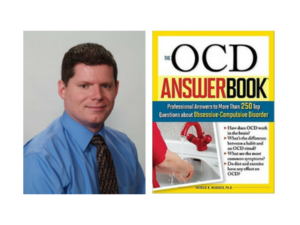 We have some SUPER exciting news this week. We are offering a NEW and FREE training called “The 10 Things you absolutely need to know about Obsessive Compulsive Disorder (OCD).” This webinar will be great if you are new to OCD and looking for some direction. It will also be a fantastic refresher into the key concepts of OCD treatment, if you are already on your road to recovery. If you are interested, click HERE to check it out. Next piece of exciting news! ERP school will be here in less than ONE WEEK! Heck yes!! Exposure & Response Prevention (ERP) School is an online course for those who don’t have access to a therapist who practices ERP and science-based skills for OCD. I will be talking a lot about this in the next few weeks, as the doors are only open to purchase ERP School from September 6th, 2018 until September 20th, 2018. Keep it in mind that this course will only be available to purchase during that time. ONE WEEK!! It is right around the corner and I could not be happier and more excited. Do you ever feel like you are doing the same thing, over and over, with no change in result? You realize your fruitless outcomes and you decide you are going to try harder this time. You might even make a pact with yourself that you will NEVER do that one thing again and you promise yourself that this is the time it will be successful. But, just like last time, you get the same result and you are left feeling overwhelmed and hopeless. Well, if this is you, this episode is going to change some things for you. This week we have a wonderful interview with Patrick McGrath, Ph.D., who is a psychologist based out of Illinois specializing in the treatment of anxiety disorders. In addition to being the president of a private practice group called Anxiety Centers of Illinois, Patrick McGrath is also the Clinical Director of the AMITA Health Alexian Brothers Behavioral Health Hospital's Center for Anxiety and Obsessive-Compulsive Disorder Program and President of OCD-Midwest, an affiliate of the International OCD Foundation. I met Patrick at the IOCDF Conference and we immediately hit it off and agreed to do an impromptu interview. It was so much fun! You might even notice it was more of a conversation than an interview, but I loved it and was so thrilled to hear Patrick’s wisdom. If you are at all interested in taking the Exposure & Response Prevention School (ERP SCHOOL) course, Patrick’s talk today might help motivate you towards that goal. He beautifully talks about how to DON’T TRY HARDER, TRY DIFFERENT and this is definitely a concept you have to consider when starting ERP. Patrick also discusses the steps his clients need to know to move towards a “Don't try harder, try different” approach. Click HERE for more information on his stress management workbook titled Don't Try Harder, Try Different and HERE for more information on his book titled The OCD Answer Book: Professional Answers to More Than 250 Top Questions about Obsessive-Compulsive Disorder. I hope you enjoy this interview as much as I did! If you are at all interested in taking the Exposure & Response Prevention School (ERP SCHOOL) online course for Obsessive Compulsive Disorder (OCD), click HERE.
We have some SUPER exciting news this week. We are offering a NEW and FREE training called “The 10 Things you absolutely need to know about Obsessive Compulsive Disorder (OCD).” This webinar will be great if you are new to OCD and looking for some direction. It will also be a fantastic refresher into the key concepts of OCD treatment, if you are already on your road to recovery. If you are interested, click HERE to check it out. Next piece of exciting news! ERP school will be here in less than ONE WEEK! Heck yes!! Exposure & Response Prevention (ERP) School is an online course for those who don’t have access to a therapist who practices ERP and science-based skills for OCD. I will be talking a lot about this in the next few weeks, as the doors are only open to purchase ERP School from September 6th, 2018 until September 20th, 2018. Keep it in mind that this course will only be available to purchase during that time. ONE WEEK!! It is right around the corner and I could not be happier and more excited. Do you ever feel like you are doing the same thing, over and over, with no change in result? You realize your fruitless outcomes and you decide you are going to try harder this time. You might even make a pact with yourself that you will NEVER do that one thing again and you promise yourself that this is the time it will be successful. But, just like last time, you get the same result and you are left feeling overwhelmed and hopeless. Well, if this is you, this episode is going to change some things for you. This week we have a wonderful interview with Patrick McGrath, Ph.D., who is a psychologist based out of Illinois specializing in the treatment of anxiety disorders. In addition to being the president of a private practice group called Anxiety Centers of Illinois, Patrick McGrath is also the Clinical Director of the AMITA Health Alexian Brothers Behavioral Health Hospital's Center for Anxiety and Obsessive-Compulsive Disorder Program and President of OCD-Midwest, an affiliate of the International OCD Foundation. I met Patrick at the IOCDF Conference and we immediately hit it off and agreed to do an impromptu interview. It was so much fun! You might even notice it was more of a conversation than an interview, but I loved it and was so thrilled to hear Patrick’s wisdom. If you are at all interested in taking the Exposure & Response Prevention School (ERP SCHOOL) course, Patrick’s talk today might help motivate you towards that goal. He beautifully talks about how to DON’T TRY HARDER, TRY DIFFERENT and this is definitely a concept you have to consider when starting ERP. Patrick also discusses the steps his clients need to know to move towards a “Don't try harder, try different” approach. Click HERE for more information on his stress management workbook titled Don't Try Harder, Try Different and HERE for more information on his book titled The OCD Answer Book: Professional Answers to More Than 250 Top Questions about Obsessive-Compulsive Disorder. I hope you enjoy this interview as much as I did! If you are at all interested in taking the Exposure & Response Prevention School (ERP SCHOOL) online course for Obsessive Compulsive Disorder (OCD), click HERE.
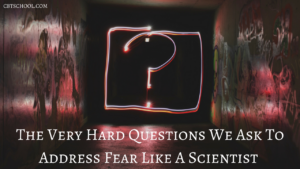 In this episode of Your Anxiety Toolkit, we talk about Addressing Fear like Scientists. Not the scary white haired kind! In this week's episode, we talk about becoming scientists who run studies that are rational, evidence-based, and experienced-based. Each time we have a thought, we have an opportunity to be a scientist. Don’t worry about those white coats. You don’t need them for these experiments. And you don’t need to have a fully fledged scientist degree either.
In this episode of Your Anxiety Toolkit, we talk about Addressing Fear like Scientists. Not the scary white haired kind! In this week's episode, we talk about becoming scientists who run studies that are rational, evidence-based, and experienced-based. Each time we have a thought, we have an opportunity to be a scientist. Don’t worry about those white coats. You don’t need them for these experiments. And you don’t need to have a fully fledged scientist degree either.
The human brain has up to 70,000 thoughts per day. That is a LOT of thoughts. When it comes to managing anxiety, much of the work is being able to identify which thoughts that are distorted (or errors) and which are not, so we can respond skillfully and mindfully. This is not an easy feat and takes ongoing work and courage.
The other day, I started thinking about all the lovely people who are being tormented by scary intrusive thoughts, unwanted emotions, and sensations that make them think and feel like there is something wrong with them. Sometimes these intrusive thoughts make us believe that something bad will happen, or that terror is on its way. Often when we have these unwanted, intrusive thoughts, we go into a pattern of trying to disprove these possibilities. We start to shift our day, just to prove that this is in no way possible. We try to make the uncertain, certain.
The problem with this is that we are not actually resolving the issues in REALITY. What we do when we have these obsessions is we create a new reality where the fear is less likely to occur. We do this by avoiding events or people or places. We also try to ensure that our fear won't come true by mentally reviewing all of the possible scenarios and how they might play out. Once we have mentally exhausted ourselves with identifying what specific scenarios might cause troublesome outcomes, we promise ourselves to never put ourselves in those situations.
How To Address Fear Like A Scientist
Addressing Fear like a scientist involves asking yourself a few very hard questions. Take a look at these questions and do a quick review on how you are responding to your anxiety and depression.
- What hypothesis (theory) is my depression, anxiety, obsessive compulsive disorder (OCD) trying to prove?
- Is this hypothesis true and based in reality and reason?
- Can I test the evidence in a non-biased way?
- Can I look at it from every angle without running away from fear? Or trying to solve it? Or steer the outcomes?
- Can I sit with the results of the experiment?
- Am I spending my time trying to prove my hypothesis or am I open to actually doing the work of a scientist, who is unbiased and accepting of the outcomes?
I invite you this week to be more vigilant about addressing fear like a scientist who tests the hypothesis in a non-biased, rational and reality-based way. I know this is hard, but you know what I am going to say here. It is a beautiful day to do hard things.
Also, CBT School is also excited to share that our lovely friend Stuart Ralph is offering The OCD Summit, an online summit specifically for OCD therapists. The OCD Summit will be a 6-week webinar series where Stuart Ralph, host of The OCD Stories podcast, will interview some incredible scientists and clinicians in the OCD field, with you the therapist as the audience. Kimberley is honored to be selected to be one of the panelists for this exciting event. Registration will include 6 topics curated for your continued development as an OCD therapist, where you can ask questions and network with other therapists in the private FB group community. Click here to join.
The Anxiety of Decision Making Is REAL and EXHAUSTING!
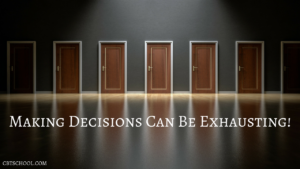 Experiencing and managing anxiety is a hard and courageous task. And you guys know what I am going to say next. It is a beautiful day to do hard things! One activity that is made difficult by anxiety is the process of making decisions. Making decisions can be exhausting and brings up a lot for us.
Experiencing and managing anxiety is a hard and courageous task. And you guys know what I am going to say next. It is a beautiful day to do hard things! One activity that is made difficult by anxiety is the process of making decisions. Making decisions can be exhausting and brings up a lot for us.“Trust your capacity to change” - Tara Brach Interview
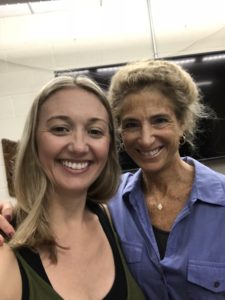
My IOCDF Conference Key Takeaways
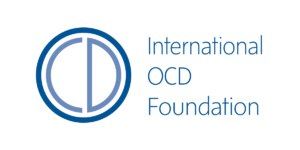 One of the biggest honors I have as a therapist who treats anxiety disorders is to present at the International OCD Foundation (IOCDF) annual conference. I just adore these conferences, mostly because they provide a mix of both treatment presentations and support groups for those who struggle with Obsessive Compulsive Disorder (OCD) and for therapist who provide evidence based treatment for those who have OCD. Another amazing thing about these conferences is that they also provide support groups and presentations on Body-Focused Repetitive Behaviors (BFRB’s) such as Trichotillomania (Hail Pulling) and Excoriation Disorder (Skin Picking) and Body Dysmorphic Disorder (BDD) and also co-occuring Eating Disorders and Substance Abuse.
One of the biggest honors I have as a therapist who treats anxiety disorders is to present at the International OCD Foundation (IOCDF) annual conference. I just adore these conferences, mostly because they provide a mix of both treatment presentations and support groups for those who struggle with Obsessive Compulsive Disorder (OCD) and for therapist who provide evidence based treatment for those who have OCD. Another amazing thing about these conferences is that they also provide support groups and presentations on Body-Focused Repetitive Behaviors (BFRB’s) such as Trichotillomania (Hail Pulling) and Excoriation Disorder (Skin Picking) and Body Dysmorphic Disorder (BDD) and also co-occuring Eating Disorders and Substance Abuse. 
Well folks! Welcome back to another episode of Your Anxiety Toolkit. Today, we have another amazing guest interview as a part of our “We can do hard things” series. I am so excited to share with you an amazing interview with Cami Julaine, an avid mental health advocate, blogger, singer, actor and all-around wonderful person. In this week's episode, Cami shares her journey through Obsessive Compulsive Disorder, an Eating Disorder, Trichotillomania, Panic Attacks and Trauma.
One of the things I love the most about Cami is that she is so authentic and open. I know we all struggle with finding the motivation to keep moving forward sometimes, as managing Anxiety Disorders such as Panic Disorder, Obsessive Compulsive Disorder (OCD), Social Anxiety, Phobias, Health Anxiety can be very difficult. Cami shares with us a inspiring story of how she went from rock bottom to taking bold steps towards her recovery. Cami shares her story of being supported by family members and close friends (ahem, Paula Abdul) who urged her to get help.
This is an incredibly interesting and informative interview, as Cami shares how she had to blend many types of tools (and therapy) to get her to where she is today. Cami shares some wonderful mindfulness tools to help manage Panic Disorder and Panic Attacks. You will really love these tools, as they are very similar to ones we have discussed in previous episodes of Your Anxiety Toolkit, with a little Cami Juliane-twist. :) Cami also talks about her experience with Cognitive Behavioral Therapy (CBT) and Exposure and Response Prevention (ERP).
Finally, Cami shares with us how she has integrated spirituality with her recovery and how she practices self-care and self-compassion as a part of that practice. This is a topic that I have’t touched upon much at all and I am sure you will find it inspirational and validating.
You can find Cami Julaine on Instagram @camijulaine and more information on her website here.
One thing before we say goodbye. GET READY...because ERP School (our online course for Exposure & Response Prevention for Obsessive Compulsive Disorder and other Anxiety Disorders) is COMING SOON, so stay tuned. Sign up HERE to be on the waitlist and be alerted as soon as it is available. PS: The first 20 people to sign up get a free, exclusive “We Can Do Hard Things Meditation” that you can download and use as often as you like. YES!
You Can Be Anxious AND Have Courage!
Courage. Where do we find it? How do we get it? And, once we get it, how do we keep it?
In this era, being courageous or brave comes with great expectations. Men are expected to show their “brave face” ALL the time, or they run the risk of being called a “sissy.” That is a lot of pressure! Women (and many times men too) are expected to multi-task multiple difficult things at once, but also must look pretty and be smiling while doing it.
But, to top it all off, we humans (men, women and children) with anxiety are often expected to meet all of the above criteria AND keep our anxiety to ourselves. Where did we get this from?! I cannot tell you how many times I have heard stories about family members or partners or parents who have told someone struggling with anxiety or depression (or another mental health struggle) to “be braver” or “toughen up” or “you gotta be stronger through this.” While I do understand what they are trying to convey, today’s podcast episode is all about approaching courage and bravery with a new (more reasonable) perspective.
You see, I like to think of bravery and courage as something you can experience WITH anxiety. I actually think they go beautifully together. We can feel dreadful fear AND be courageous. We can feel overwhelming sadness AND be strong. What we have been told about bravery and courage is all off. It limits us and makes us feel like we must not try things until we have no fear and we can “hold it together.”
I like to believe that the person who decided to go to the party, despite their tremendous social anxiety, is the brave one. I believe that the person who does that really hard thing (even if it happens to be easy for other people) is the courageous one. I believe the one who has a tear running down their face as they face their fear is a brave rock star!
I hope you enjoy this podcast episode and begin to challenge your view of what bravery and courage looks like. As always, thank you for supporting me with this podcast and with CBT School's online courses.
Enjoy!
Value-Based Living
Hello there CBT School Family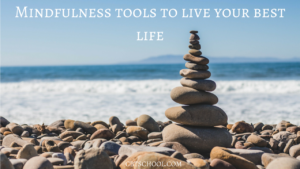 Welcome to another episode of Your Anxiety Toolkit Podcast. As you may know, each week I do my best to bring you a new tool or idea for you to put in your toolkit, in hope that it will give you some skills to manage anxiety, panic and other difficult thoughts, feelings and sensations. I always envision that I am slowly handing you one tool after another and that you are carefully packing those tools into your toolkit or tool belt, so that you feel ready to face your day, with or without anxiety. This week, I want to discuss with you your metaphorical toolkit; the box or belt in which you hold dear to your heart and use daily to help you live your best life. The most important thing to understand in today’s podcast is that carrying a tool belt/toolbox/toolkit is a choice. Every week, you freely join me for a weekly discussion about recovery and living a great life, while having anxiety. You don’t have to carry your toolkit and all the tools around. Many choose not to carry a tool belt or any tools. But you, you do. It’s pretty cool if you ask me. You see, the tools your put in your toolkit are your mindfulness skills. Your toolkit, the place you hold these tools, is your values. If you are on a mission to be a better human, you obviously value your wellbeing. It is a value that you stand by. You value your recovery. You value your quality of life. Using these tools of yours contributes to value-based living. Values are very important to our recovery. The only problem is, that sometimes fear can come in and stomp all over our values. Sometimes fear can lead us away from our values and away from our toolkit. Sometimes fear can lead us towards other problematic behaviors, such as compulsions including checking, counting, avoidance, reassurance seeking and mental rumination. Fear can also lead us towards anger and saying mean things to ourselves. Today, we talk about identifying our values and ways to use the tools you have to help you lead with values. We use concepts from Acceptance & Commitment Therapy, also knows as ACT. ACT is a very helpful treatment modality that beautifully compliments Cognitive Behavioral Therapy (CBT) and Exposure & Response Prevention (ERP). I hope you find it helpful! Forward we go, Kimberley
Welcome to another episode of Your Anxiety Toolkit Podcast. As you may know, each week I do my best to bring you a new tool or idea for you to put in your toolkit, in hope that it will give you some skills to manage anxiety, panic and other difficult thoughts, feelings and sensations. I always envision that I am slowly handing you one tool after another and that you are carefully packing those tools into your toolkit or tool belt, so that you feel ready to face your day, with or without anxiety. This week, I want to discuss with you your metaphorical toolkit; the box or belt in which you hold dear to your heart and use daily to help you live your best life. The most important thing to understand in today’s podcast is that carrying a tool belt/toolbox/toolkit is a choice. Every week, you freely join me for a weekly discussion about recovery and living a great life, while having anxiety. You don’t have to carry your toolkit and all the tools around. Many choose not to carry a tool belt or any tools. But you, you do. It’s pretty cool if you ask me. You see, the tools your put in your toolkit are your mindfulness skills. Your toolkit, the place you hold these tools, is your values. If you are on a mission to be a better human, you obviously value your wellbeing. It is a value that you stand by. You value your recovery. You value your quality of life. Using these tools of yours contributes to value-based living. Values are very important to our recovery. The only problem is, that sometimes fear can come in and stomp all over our values. Sometimes fear can lead us away from our values and away from our toolkit. Sometimes fear can lead us towards other problematic behaviors, such as compulsions including checking, counting, avoidance, reassurance seeking and mental rumination. Fear can also lead us towards anger and saying mean things to ourselves. Today, we talk about identifying our values and ways to use the tools you have to help you lead with values. We use concepts from Acceptance & Commitment Therapy, also knows as ACT. ACT is a very helpful treatment modality that beautifully compliments Cognitive Behavioral Therapy (CBT) and Exposure & Response Prevention (ERP). I hope you find it helpful! Forward we go, Kimberley